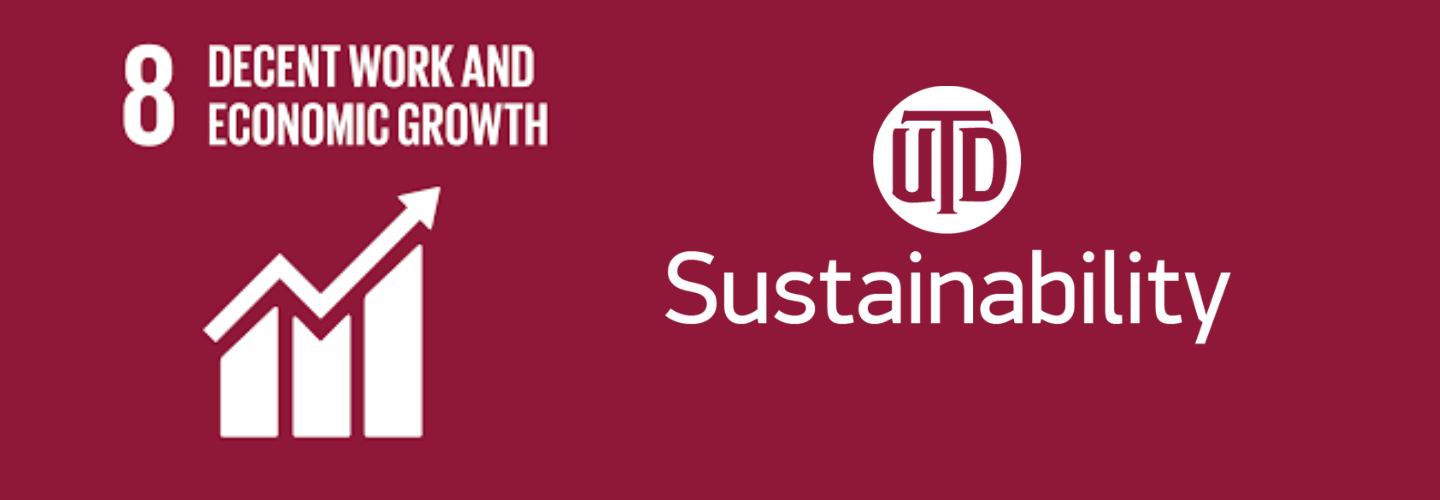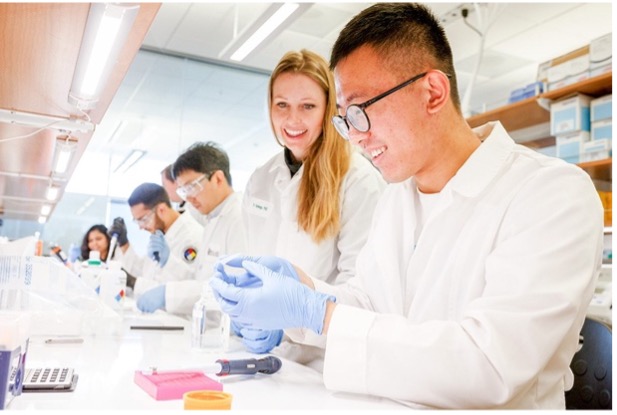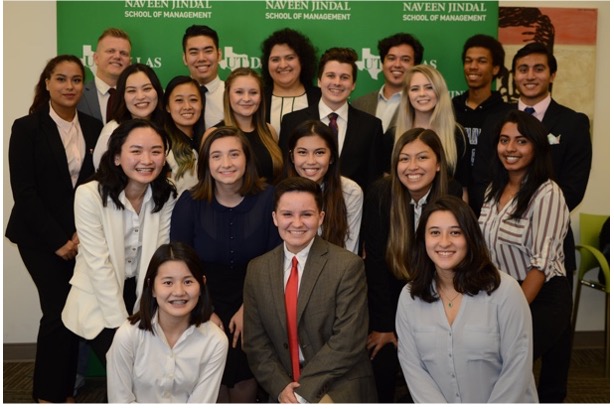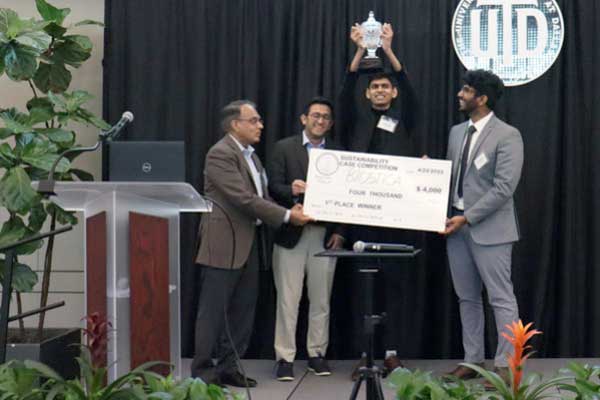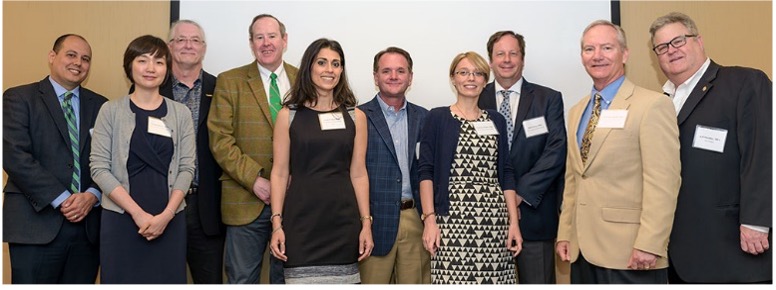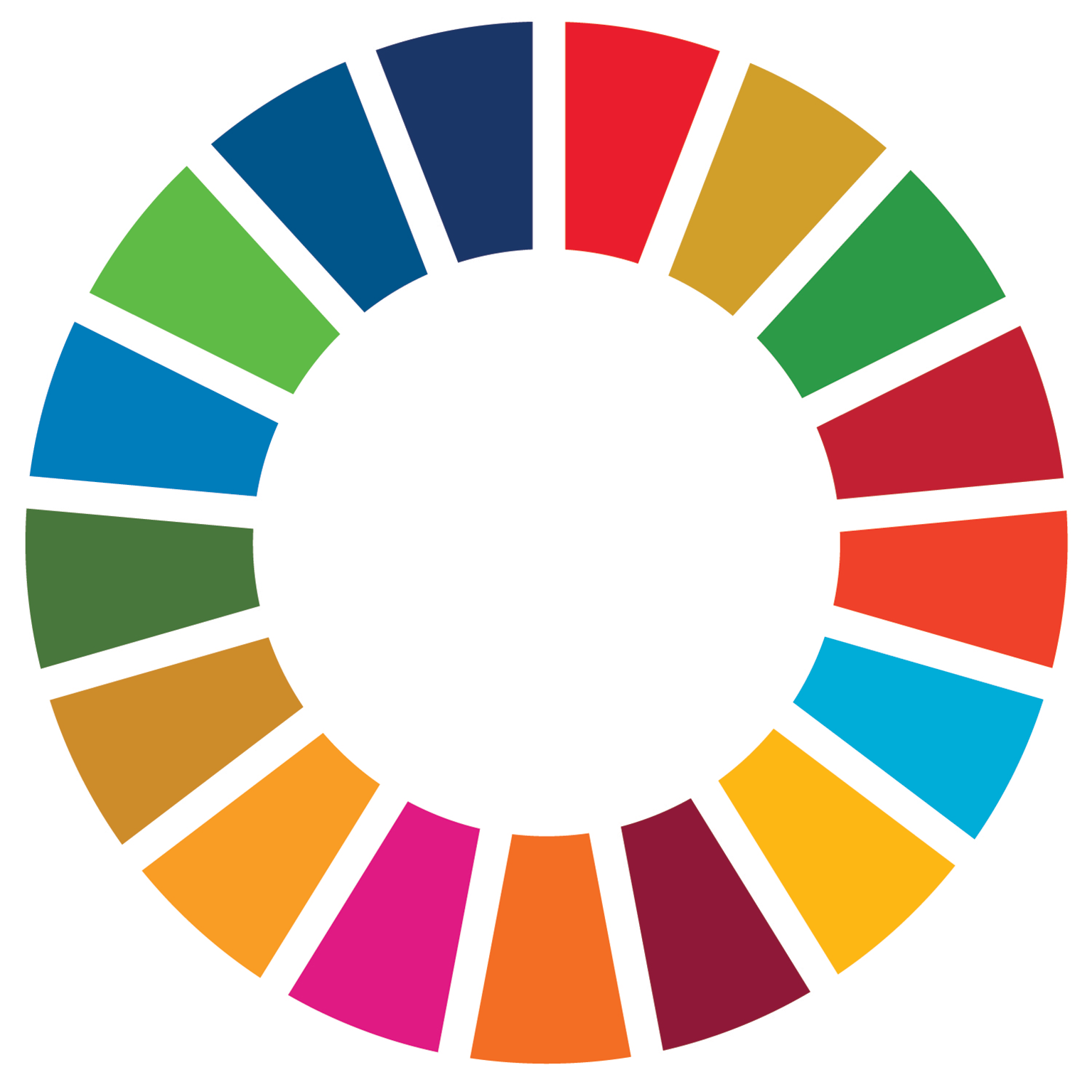Extending past environmental and social, Sustainable Development Goal 8
directly addresses the third pillar of sustainability: economic sustainability.
The targets and indicators in SDG 8
focus on promoting sustainable and inclusive economic growth, as well as full and
productive decent employment for all.
To solve the social and environmental issues that economic challenges can cause,
SDG 8 [Sustainable Development Goal 8]
is intersectional in nature. Rather than just focusing on unchecked economic growth,
this goal strives to address inequalities for disabled people and underrepresented
groups in the workplace. Other targets include protecting labor rights, promoting
sustainable tourism, and improving global resource efficiency.
SDG 8 [Sustainable Development Goal 8]
challenges stakeholders to not just focus on the amount of growth, but what causes
that growth.
North Texas is one of the fastest growing metropolitan regions in the United
States, with more than 170k people between 2021 and 2022 alone.
Sectors such as finance and insurance, business services, and transportation
have created over 172k more jobs in 2022.
With a continually booming economy, it is essential that areas in North Texas
remain committed to equitable growth and decent work. The
DFW [Dallas / Fort Worth]
metroplex still struggles with high levels of poverty and limited access to affordable housing. At UT Dallas, focusing on
SDG 8 [Sustainable Development Goal 8]
ensures decent, safe employment for workers while also providing students with a
globally focused business education.
Sustainable Procurement
SDG 10: Reduced Inequalities
SDG 12: Responsible Consumption and Production
The University of Texas at Dallas accommodates many thousands of students,
staff, faculty, alumni, and visitors throughout the year. Many departments, offices,
and University stores purchase garments such as shirts, sweaters, and graduation gowns.
To reduce our overall footprint and environmental impact, The Office of Sustainability
recommends evaluating the feasibility of purchasing garments that are made of recycled
materials and/or supplied by suppliers who adhere to the Fair Labor Association’s
Code of Conduct. The University of Texas at Dallas also strives to make a positive
impact to support economic diversity and prosperity within the State of Texas. To nurture
economic growth, UT Dallas supports locally based businesses, enterprises, and
organizations through engagement, partnership, and business opportunities. Our commitment
to partnering with small businesses showcases Target 8.3: promoting the growth of small and medium sized
enterprises. Through promoting sustainable procurement, UT Dallas contributes to Target 8.4: improving global resource efficiency throughout
the world.
Research & Academic Safety Group
SDG 3: Good Health and Well-Being
SDG 9: Industry, Innovation and Infrastructure
The Research and Academic Safety group at UT Dallas works to address a
variety of areas on campus related to research and environmental safety. These include,
but are not limited to, Training and Access, Hazardous Waste, Equipment Moves and
Decontamination, Disaster Recovery, Chemical Safety and Hygiene, Laser Safety, Biological
Safety, and Radiation Safety. Our hope is to develop and foster a climate of responsible
health, safety, and environmental practices to recognize the value of safety, prevent
accidents, protect our environment, and aid in getting the job completed with pride
and professionalism. We are committed to ensuring that our community has the knowledge
and tools necessary to carry out safety responsibilities.
Read more about their services, and the Safety RAMPP program.
The Research & Academic Safety group, including the hazardous waste team,
attends annual refresher trainings, including for RCRA, DOT, and HAZWOPER 40-hr.
This ongoing professional development ensures highest level of compliance and safety
for waste management, and communication to the generators of chemical waste.
Global Business
SDG 4: Quality Education
SDG 17: Partnerships for the Goals
Through the Naveen Jindal School of Management, UT Dallas offers a B.S. in Global Business for
undergraduate students. This degree program is unique in focusing on project-based
learning and requiring students to study abroad for one semester. There are seven
concentrations offered through Global Business, including Energy Management, Innovation
and Entrepreneurship, and Real Estate Investment Management. This degree plan emphasizes
internationally focused economic development and prepares students for cross-cultural
business communication.
For masters’ students, the Global Business course provides an introduction
to the fundamental concepts of international business, covering macro-level environmental
factors that affect international business today. Topics include globalization, country
environments, culture, international trade and investment, regional economic integration,
and the global monetary system. Through this course, students learn how to incorporate
SDG 8 [Sustainable Development Goal 8]
into their future careers.
Sustainability Case Competition
SDG 4: Quality Education
SDG 17: Partnerships for the Goals
Judge Tan Moorthy from Infosys (left)
and the first-place winners
Beginning in 2021, the Naveen Jindal School of Management hosted the first-annual Global Sustainability Experience, a competition open to all UT Dallas students to pitch their sustainable business idea to a panel of judges. By participating in the competition, students will learn to incorporate principles of sustainability into their business practices and to engage in critical thinking about solutions to our Earth’s problems.
Master of Public Administration Capstone Course
SDG 4: Quality Education
SDG 11: Sustainable Cities and Communities
Taught by Dr. John McCaskill, this Capstone course uses the project as the
defining requirement. The students will spend 12-16 weeks working on a substantive
project for presentation and submission to a local organization. In the past, students
have provided program evaluations for nonprofits, social media plans for nonprofits,
cost recovery analyses for city departments, a redesign of the building and permitting
department of a local city, and several others. Those are the size and scope that a
group of 8-12 students will take on. They produce a 25-50 page report and 20 minute
presentation. This course is another example of how UT Dallas encourages partnerships
between students and local businesses.


